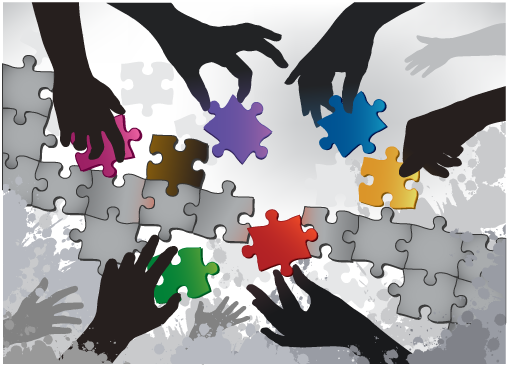Using concepts from our model we created a simple framework for Critical Thinking
We contrast your everyday automatic thinking with Critical Thinking.
Decisions
Conclusions
Clarity
Critical Thinking
Stronger foundation for decisions
More time on getting clear and less time and rework needed for decisions
Clarity
Clarity
Conclusions
Decisions
Conclusions
Decisions
Automatic Thinking
We train the attendees in the use of various techniques for Getting Clear, Reaching Conclusions and Making Decisions
Empty Bucket
Inspection
Need
Why?
So What?
Socratic Questioning
Listening to the Answer
Broader / Subordinate
Facts
Observations
Experiences
Beliefs
Assumptions
Need
Criteria
Mulitple curriculums for varied attendees
We also modify the curriculum for the mix of attendees:
• Executives and Business Leaders
• Teams (a Manager and team, or cross functional)
• Supervisors, Managers and Directors
• Individual Contributors
• Mixed class of multiple disciplines and responsibilities
Decisions
Focus
Everyone Aligned
Time and Money spent on the right problem
People working on the right problem or decision
Clarity
Thoughtful,
Defendable and Clear Conclusions
New ideas
Solid Conclusions
Successful Decisions
Less iterations and redo's
Alignment
Faster and Quality Decision Making
Weaker foundation for decisions
Less time on getting clear and more time and rework needed for decisions
Reach
Conclusions
Get Clear
This Results in ...
What's the benefit of Critical Thinking
Attendees learn Pragmatic Critical Thinking Techniques resulting in;
• Faster and higher quality decisions that are more likely to be the correct ones.
• Superior solutions to problems, goals, and strategies.
• Better understanding of the dynamics between different aspects of a business or project
• Innovative ideas and solution
• Higher productivity
• Being better equipped to tackle problems and make decisions on a daily basis.
Critical Thinking skills gained can be applied to:
• General problem solving and decision making
• New product ideas and creation
• Short and long term business strategies
• Improved development processes and quality
• Improved operational efficiency
• Crisis Management
• Revenue generation and cost reduction strategies
• Customer care improvement
Contact us for more information or to schedule a Workshop
Optional:
Post course 1:1 mini coaching sessions available for followup and continued assistance
What's unique about our workshop?
This isn't your ordinary "academic" day. It's not just "theory", but pragmatic, proven techniques for solving real world business problems, strategies and challenges.
Customized
We customize the workshop to your business, with real examples and exercises that come from interviews with would be attendees. The attendees learn critical thinking AND see it in action with their own day-to-day issues.
Critical Thinking
For Leaders
Course #401
Duration:1 Day, At customers location
Overview
(Download the Workshop Brochure for more details)
This customized one day workshop is the same course as #201 Critical Thinking for Problem Solving and Decision Making but tailored for Managers and Leaders with examples suited for their seniority including additional elements related to Leading others to Think Critically. It is an excellent component in a leadership training curriculum. The workshop provides attendees with an excellent foundation and set of tools and techniques for Critical Thinking in a variety of situations. The participants practice these tools in exercise sessions using a real individual business issue. Templates, called Thinksheets, are used as a guide for thinking, both in the class, and to aid future out of class use Participants learn the framework and toolset for Critical Thinking and how it can be applied to both their problem solving and decision making, and to lead others to think critically. The course includes:
• A 3 step Critical Thinking Process for solving problems and making decision
• "Thinksheet" guides for clarity about a situation, reaching a conclusion and making a decision.
• Numerous Critical Thinking Tools and Techniques with interactive and group exercises
• Critical Thinking as a leadership tool to influence and engage others to think critically.
• Customized examples and exercises from prior interviews with attendees
• Being a Thinking Coach
• Critical Thinking Practice and Role Playing with real time issues of the attendees
During the class, the attendees will be applying Critical Thinking to their own current business problem. In this way, when they return to their desk, they already know how to proceed.
Topics Covered:
• Distinguishing “Automatic” Thinking from “Manual Thinking”
• Benefits of Critical Thinking
• Empty your bucket
•
Clarity
- “Get Clear” on a problem to solve or decision to make, and the Clarity Thinksheet
- Inspecting the problem statement
- The tools of Socratic Questioning; Why, So What
- Need vs. Want
•
Thinking Coach
with role play
•
Conclusions
- Create Solutions and the Conclusion Thinksheet
- Applying Inductive & Deductive thinking.
- How facts, observations, experiences, beliefs and assumptions affect your thinking
- Why people come to different conclusions and what to do about it.
- Using Critical Thinking to Influence and Persuade
•
Decisions
- Taking action and the Decision Thinksheet
- The Elements of Decision; Who, When and Criteria
- Upsides and Downsides
• Next Steps - Your plan to implement your learning (for yourself and your team)










